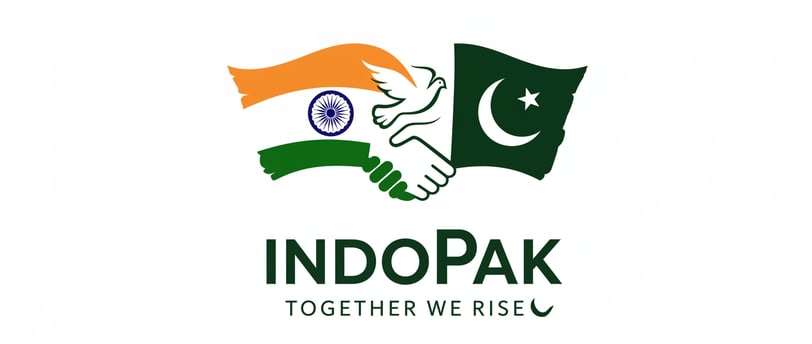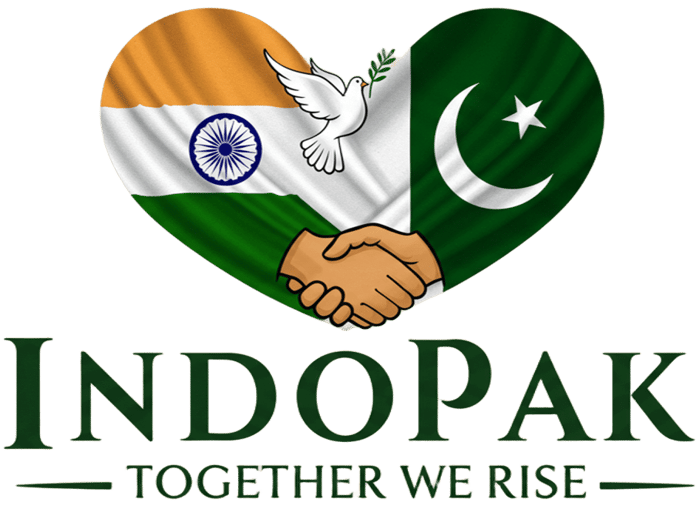From Conflict to Cooperation: A Roadmap for Indo-Pak Peace and Prosperity
Transforming Indo-Pak relations requires diplomatic dialogue, economic ties, and cultural collaboration. Addressing issues like Kashmir and terrorism through regular talks can foster mutual trust, while reviving trade and promoting people-to-people connections will lead to shared prosperity and stability for both nations.
5/8/20242 min read


Title: From Conflict to Cooperation: A Roadmap for Indo-Pak Peace and Prosperity
Transforming the complex and historically strained relationship between India and Pakistan into one of peace and cooperation is not only a diplomatic necessity but also a moral and economic imperative. With more than 1.5 billion people collectively residing in these neighboring nations, the benefits of collaboration far outweigh the costs of continued hostility. The roadmap to a peaceful and prosperous Indo-Pak future lies in diplomatic dialogue, strengthened economic ties, and meaningful cultural exchange.
Diplomatic Dialogue: The First Step Toward Trust
The cornerstone of any peaceful resolution begins with consistent and open diplomatic communication. Addressing contentious issues such as the Kashmir conflict and cross-border terrorism requires more than isolated talks; it demands sustained engagement. High-level meetings, backchannel diplomacy, and involvement of neutral peace facilitators can create an atmosphere of trust. Bilateral confidence-building measures and institutionalized dialogue platforms can help ensure that even in times of tension, communication lines remain open.
Economic Ties: A Pathway to Mutual Prosperity
Economic interdependence is one of the most powerful tools for conflict resolution. Reviving bilateral trade between India and Pakistan could lead to substantial mutual gains, particularly in agriculture, textiles, and pharmaceuticals. Reopening trade routes such as the Wagah-Attari border and establishing joint economic corridors could revitalize local economies and create employment. The promotion of cross-border investments and business partnerships would further bind the two nations through shared interests.
People-to-People Connections: Bridging the Divide
Ordinary citizens often bear the brunt of political conflicts. Therefore, fostering people-to-people connections is critical. Simplified visa regimes, especially for students, academics, and cultural figures, can promote understanding and reduce hostility. Cultural exchanges through sports, music, films, and literature help humanize each side. Joint academic programs and cross-border festivals can foster friendships and break long-standing stereotypes.
Joint Solutions for Shared Challenges
India and Pakistan face several shared challenges such as water scarcity, climate change, and public health crises. Collaborating on these fronts can build trust and provide tangible benefits. Modernizing the Indus Waters Treaty, launching joint climate initiatives, and establishing disaster-response mechanisms can lay the groundwork for future cooperation. A united front in combating environmental degradation or pandemics can set an example of responsible regional leadership.
Changing the Narrative: The Role of Media and Education
Media and educational institutions must shift from adversarial narratives to those that promote peace and understanding. Encouraging balanced journalism, producing documentaries on shared heritage, and incorporating peace education in schools are vital. Public campaigns and digital storytelling can amplify stories of cross-border friendship and cooperation, helping to reshape public perception over time.
Conclusion: A Shared Future Awaits
The transformation of Indo-Pak relations from conflict to cooperation is challenging, but far from impossible. By investing in dialogue, economic ties, cultural understanding, and joint problem-solving, both countries can move toward a stable and prosperous future. Peace is not just a diplomatic goal—it is a societal need. As global neighbors with intertwined histories and futures, India and Pakistan have every reason to walk this road together toward shared peace and prosperity.
